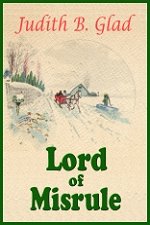
John Keats - John Keats was born in Finsbury Pavement near London on October 31st, 1795. The first son of a stable-keeper, he had a sister and three brothers, one of whom died in infancy. When John was eight years old, his father was killed in an accident. In the same year his mother married again, but little later separated from her husband and took her family to live with her mother. John attended a good school where he became well acquainted with ancient and contemporary literature. In 1810 his mother died of consumption, leaving the children to their grandmother. The old lady put them under the care of two guardians, to whom she made over a respectable amount of money for the benefit of the orphans. Under the authority of the guardians, he was taken from school to an be apprentice to a surgeon. In 1814, before completion of his apprenticeship, John left his master after a quarrel, becoming a hospital student in London. Under the guidance of his friend Cowden Clarke he devoted himself increasingly to literature. In 1814 Keats finally sacrificed his medical ambitions to a literary life.
- Read John's Blog
- Elizabeth's Blog is once again all encompassing.
- Marriage of Cadmus & Harmony - Book to read.
- The Greatest gifts come through madness when one is divinely inspired.
- Phenomenal or Fun Animal?
- What is divine intervention?
- Roberto Calasso - apparently pursuing a self-alliterating course of titles: Cadmus (The Marriage of Cadmus and Harmony), on Greek mythology); Kasch (The Ruin of Kasch) on modernity; Ka (Ka: Stories of the Mind and Gods of India, on Indian mythology); Quarantanove (49 in Italian) (The Forty-nine Steps, philosophy, addressed to Pierre Klossowski and his wife); even Garuda (The Story of Garuda, Hindu myth); and Kafka (K). In so doing he has traced a very broad path.
- Ate - Infatuation to the point in which you've ruined your life.
Mortal Life cannot have anything great about it but Ate.
- Turned his mind to unknown arts - Changes the laws of nature - we have become nature.
- Rat & Mole - A Wind in the Willows : Chapter 7 Piper's at the gates of dawn.
The baby otter is on Pan's lap, but when they find him, Pan makes them forget what they have heard. - Pan's Labyrinth - 2006 Academy Award-winning Spanish language film written and directed by Mexican film-maker Guillermo del Toro. Its original Spanish title is El laberinto del fauno, which refers to the faun of Roman mythology and directly translates to The Labyrinth of the Faun; the English title refers to the faun-like Greek god Pan, though del Toro has stated that the faun featured in the film is not actually Pan.
- Margarette Atwood - Ovid's Metamorphoses "After Ovid"
- Decadent - In the end, the only thing that matters is art.
- "According to Pythagoras." (funny link)
- In addition to its use of all keys, the Well-Tempered Clavier was unusual in the very wide range of techniques and modes of expression used by Bach in the fugues. No other composer had produced such vividly characterised and compelling pieces in the fugal form, which was often regarded as a theoretical exercise. Many later composers studied Bach's work in an effort to improve their own fugal writing: Verdi even found it useful for his last work, Falstaff
- Keep changing your mind/subject.



No comments:
Post a Comment